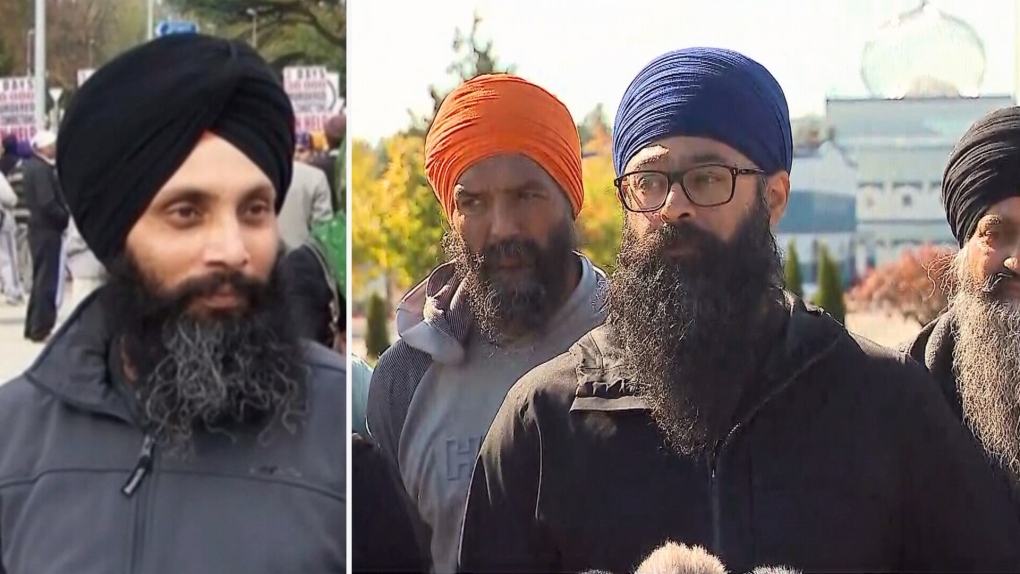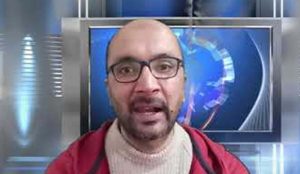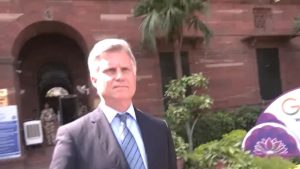
Canada expels diplomat over killing of Punjabi businessman, cites potential India link
Canadian Prime Minister Justin Trudeau has said there are “credible allegations of a potential link” between Indian government agents and the killing of Khalistani leader Hardeep Singh Nijjar in June, a claim that was rejected by the Indian side as “absurd and motivated”.
Soon after Trudeau made the claim in Canada’s Parliament, foreign minister Mélanie Joly announced the expulsion of a “top Indian diplomat” as a consequence. Joly’s office identified the diplomat as Pavan Kumar Rai, the head of the Research and Analysis Wing (RAW) in Canada, according to public broadcaster CBC.
Trudeau’s claim will further damage bilateral relations which are already at an all-time low. The external affairs ministry said in a statement that similar allegations were made by Trudeau to Prime Minister Narendra Modi at a meeting on September 10 and “were completely rejected”.
“Such unsubstantiated allegations seek to shift the focus from Khalistani terrorists and extremists, who have been provided shelter in Canada and continue to threaten India’s sovereignty and territorial integrity. The inaction of the Canadian government on this matter has been a long-standing and continuing concern,” the statement said.
The development came a little more than a week after Modi told Trudeau at the meeting on the margins of the G20 Summit that New Delhi expects Ottawa to cooperate in tackling pro-Khalistani elements on Canadian soil who are “promoting secessionism and inciting violence against Indian diplomats”.
Nijjar, a Canadian citizen, was shot dead in the parking lot of Guru Nanak Sikh Gurdwara in the town of Surrey in British Columbia on June 18. Nijjar was earlier designated a terrorist by the Indian government for his involvement in pro-Khalistan activities.
In a speech to Canada’s House of Commons on Monday, Trudeau said he wished to inform the House of an “extremely serious matter” that he had discussed with opposition leaders.
“Over the past number of weeks, Canadian security agencies have been actively pursuing credible allegations of a potential link between agents of the government of India and the killing of a Canadian citizen, Hardeep Singh Nijjar. Canada is a rule-of-law country. The protection of our citizens and defence of our sovereignty are fundamental,” he said.
He added: “Canada has declared its deep concerns to the top intelligence and security officials of the Indian government. Last week, at the G20, I brought them, personally and directly, to Prime Minister Modi in no uncertain terms. Any involvement of a foreign government in the killing of a Canadian citizen on Canadian soil is an unacceptable violation of our sovereignty.”
Trudeau said some Indo-Canadians are feeling “angry” and “perhaps frightened right now”.
Soon after, Joly told the media that the “allegations that a representative of a foreign government may have been involved in the killing of a Canadian citizen…on Canadian soil is not only troubling but it is completely unacceptable”. She added: “As of today and as a consequence, we’ve expelled a top Indian diplomat from Canada.”
Though Joly didn’t name the Indian diplomat, her office subsequently identified him as the RAW station chief in Canada. While it is not unusual for countries to expel operatives of a foreign intelligence agency, it is rare for them to identify the expelled official.
Joly also said she had conveyed Canada’s principles regarding seeking the truth, protecting Canadians at all times and protecting Canada’s sovereignty to her Indian counterpart and sought “India’s full collaboration to get to the bottom” of the matter. She added that Canada wouldn’t “tolerate any form of foreign interference”.
Responding to the Canadian government’s allegations, the external affairs ministry rejected Trudeau’s statement in Parliament and the statement by Canada’s foreign minister. “Allegations of the government of India’s involvement in any act of violence in Canada are absurd and motivated,” the ministry said in its statement.
“Similar allegations were made by the Canadian Prime Minister to our Prime Minister and were completely rejected,” the statement said. “We are a democratic polity with a strong commitment to rule of law.”
The statement pointed out that “Canadian political figures have openly expressed sympathy for such elements” and this remains a matter of deep concern for India. “The space given in Canada to a range of illegal activities including murders, human trafficking and organised crime, is not new,” it added.
While rejecting any attempts to connect the Indian government to such developments, the Indian side urged the Canadian government to take “prompt and effective legal action against all anti-India elements operating from their soil”.
CBC News quoted a senior Canadian government source as saying that Trudeau had briefed the leaders of the country’s closest allies about the case, including UK Prime Minister Rishi Sunak, French President Emmanuel Macron and US President Joe Biden.
While addressing the Canadian media on the margins of the G20 Summit in New Delhi, Trudeau had said he had raised the issue of foreign interference in Canada’s internal affairs with his Indian counterpart.
Asked at the same news conference about India’s concerns over the activities of pro-Khalistan elements, Trudeau said Canada will always defend freedom of peaceful protest but simultaneously asserted it will prevent violence.
“Canada will always defend freedom of expression, freedom of conscience and freedom of peaceful protest and it is extremely important to us,” he had said. “At the same time, we are always there to prevent violence and to push back against hatred. I think on the issue of the community, it is important to remember that the actions of the few do not represent the entire community or Canada,” he added.
A tersely worded readout issued by the external affairs ministry on the bilateral meeting on September 10 had said that Modi had conveyed to Trudeau India’s “strong concerns about continuing anti-India activities of extremist elements in Canada”, who are “promoting secessionism and inciting violence against Indian diplomats, damaging diplomatic premises, and threatening the Indian community…and their places of worship”.
Modi had further said the “nexus of such forces with organised crime, drug syndicates, and human trafficking should be a concern for Canada” and that it is “essential for the two countries to cooperate in dealing with such threats”.
India-Canada relations are in tatters over the activities of pro-Khalistan elements on Canadian soil. In recent months, the extremist elements have organised rallies and protests in support of Khalistan in Canadian cities and targeted Indian diplomatic facilities and officials. They have also held a so-called referendum on the creation of Khalistan in several cities.
The Indian side was particularly angered when a float at a recent rally eulogised the assassins of former prime minister Indira Gandhi.
The troubled bilateral ties have also affected negotiations on a free trade agreement, with officials from both sides saying the talks have been paused. Two-way trade in goods in 2022 was worth US$10.5 billion, including Indian exports of US$6.4 billion, while bilateral trade in services in 2021 was worth US$5.88 billion. Canadian pension funds have invested more than US$55 billion in India.
Canadians of Indian origin account for about 4% of the country’s population. With nearly 1.6 million people of Indian origin and another 700,000 non-resident Indians (NRIs), Canada hosts one of the largest Indian diasporas. The current House of Commons has 19 MPs of Indian origin, including three ministers in the cabinet.
The opposition New Democratic Party, led by Jagmeet Singh, has helped keep Trudeau’s minority government in power. Source
Who is Hardeep Singh Nijjar?
1)Nijjar, associated with banned Indian separatist group Sikhs for Justice (SFJ), held the position of ‘Number 2’ after Gurpatwant Singh Pannun. He hailed from Jalandhar’s Bharsingh Pura village as per Punjab Police dossiers and moved to Canada in 1996.
2)In Canada, he began working there as a plumber, however over the past few years, his wealth saw a sudden rise, due to his involvement in pro-Khalistan activities.
3)Nijjar’s involvement in terrorism started with his membership in Babbar Khalsa International, led by Jagtar Singh Tara. Subsequently, he established his own group, Khalistan Tiger Force (KTF). He played a significant role in identifying, connecting, training, and funding Khalistani cells in India, accumulating over 10 FIRs against him.
4)In 2014, Nijjar masterminded the assassination of self-proclaimed spiritual leader Baba Bhaniara. In 2015, he conducted a training camp in Canada to instruct Mandeep Singh Dhaliwal, who was subsequently dispatched to Punjab with the mission of targeting Shiv Sena leaders. Mandeep was arrested in June 2016.
5)In November 2020, Nijjar partnered with fellow gangster Arsh Dalla, who was also residing abroad. Together, they got involved in the murder of Manohar Lal, a follower of the Dera Sacha Sauda, which took place at Lal’s office in Bhagta Bhai Ka, Bathinda, in 2021.
The article’s content, excluding the headline, has been directly taken from a third-party syndicated feed without any modifications or editing by the Kashmir InFocus staff.

